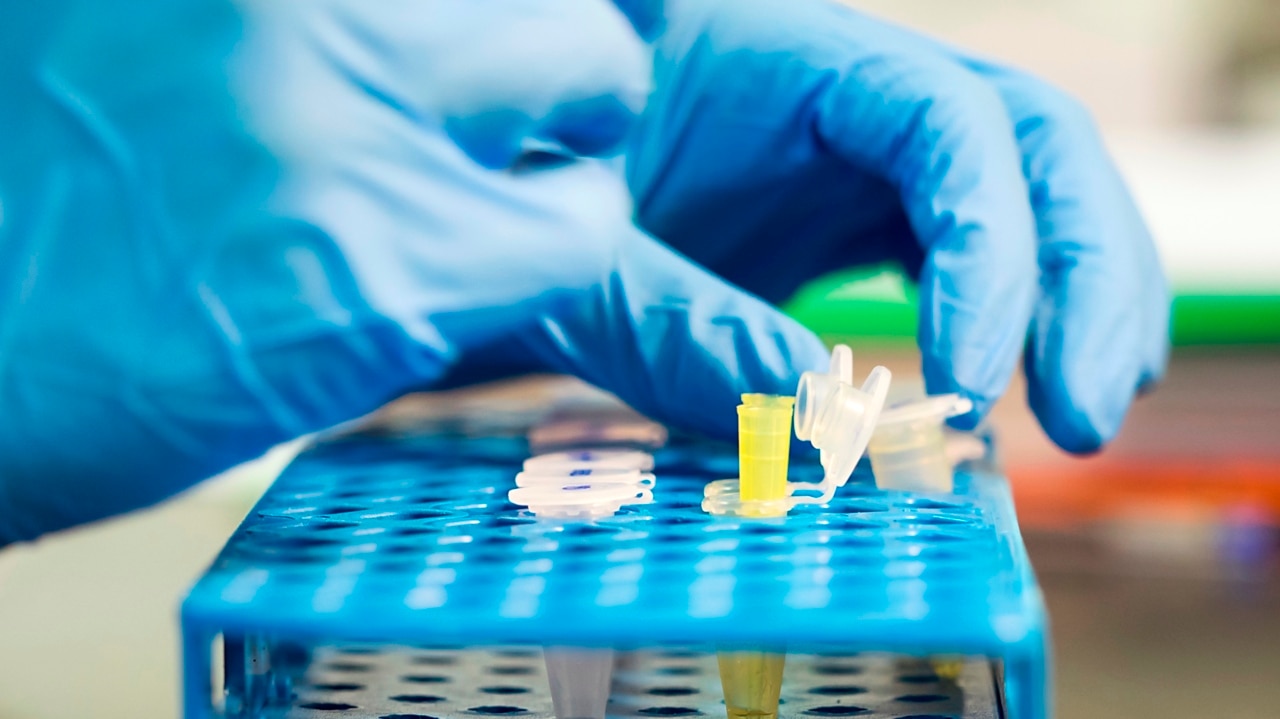Qld DNA inquiry: Lab boss accused of misleading cops
The managing scientist at a Queensland DNA lab at the centre of an inquiry has been accused of deliberately misleading police.

A lab boss has denied being “trapped by lies” and deliberately misleading Queensland Police in a bid to discourage them from reverting to a best practice DNA testing method for serious crimes phased out in 2018.
Managing scientist Cathie Allen faced a second gruelling day of questioning at Queensland’s DNA inquiry which is examining a lab’s disastrous failure to test thousands of samples which could have helped solve major crimes.
In early 2018 Queensland Health’s Forensic and Scientific Services stopped testing DNA samples below a certain threshold and instead incorrectly reported them to the police and courts as being DNA insufficient, or DIFP.
This included major crime priority one samples relating to the most serious types of crime.
Prior to this the lab had used automatic-microconcentration testing before amplifying the low level samples which was regarded as “the best way of achieving the highest proportion of successful profiles”.

In November 2018 a police officer emailed Ms Allen, who had been instrumental in the changes, highlighting how further testing of low level DNA samples was actually yielding successful results.
Given this, he asked whether cases including homicides, where further testing had stopped due to apparently “insufficient DNA”, should be re-examined.
In response Ms Allen said using the automatic microcon process would mean that all of the available DNA extract would be consumed so no further testing could ever take place.
The inquiry has heard this is incorrect with Ms Allen today stating she should have qualified her answer.
“The reason that you made that statement to the police was to discourage them from wanting to have auto microcon reintroduced for the (priority) one samples,” counsel assisting Michael Hodge KC said.
“No that’s not true,” Ms Allen responded.

Ms Allen said she was trying to point out the risk to QPS but “in hindsight” could have communicated it better.
“It’s not in hindsight, this was quite deliberate. You were deliberately seeking to mislead the Queensland Police weren’t you,” Mr Hodge said
“No I was not.”
The inquiry heard the police officer doggedly kept raising the matter with Ms Allen and in December 2021 told her that in one case 30 per cent of the samples deemed insufficient DNA had actually come back with DNA results.
Ms Allen responded that a review of a large data set found only “a very small percentage” of low level DNA samples may return a DNA profile if further tested.
“We’ve monitored this and had found that with a larger data set, the small percentage didn’t vary,” she wrote in the email.
Ms Allen told the inquiry she was “feeling anxious and stressed” about that response because she couldn’t recall what she was referring to.
In a follow up email the officer asked what percentage Ms Allen’s dataset was showing and she responded the lab would review the scientific data and provide further advice to police.
Asked why she didn’t take those steps at the time Ms Allen said the lab was having difficulties with staff numbers due to Covid and school holidays.
“You’re making up reasons to cover up the fact that you didn’t do anything because you were trapped,” Mr Hodge said.
“No that’s not true,”she responded.
“You were trapped by the lies that you’ve been telling for several years.
“ That’s not true.”

Yesterday the inquiry heard that in June of this year, after prolonged scrutiny about the lab’s decision in 2018, Ms Allen put forward a “preferred option” she wrongly described as being the method used immediately before the 2018 DIFP change.
Ms Allen said this was “human error” but Mr Hodge today alleged it was to “impede the obtaining of results”.
“You did that because you were trying to conceal from the public the consequences of the misleading conduct that you’d engaged in at the beginning of 2018 to bring about this DIFP process,” he said
“I was not trying to mislead the public. I was trying in that June period. to rectify as best I could the human error that I had made.
“ You have lied consistently and repeatedly about your conduct because you are unwilling to admit what it is that you have done.
“That is not true and I refute that.”
The inquiry continues on Monday before Commissioner Walter Sofronoff, KC.




